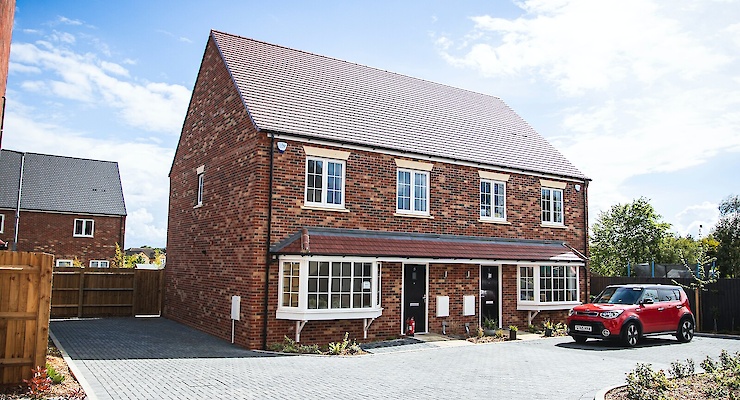


Mortgage Advisor & Director

Mortgage Advisor & Director

Leasehold properties are those where although you own the property, you don’t own the land it occupies. When you buy a leasehold property the remaining lease designates how long you’re able to live in or otherwise use it, and you may need permission from the leaseholder to make structural changes.
Leasehold houses are becoming less common, although they do exist. Most leasehold properties in the UK are flats and other multiple-occupancy premises. Here, we explore leasehold property finance and lay out your options.
Is it harder to get a mortgage on a leasehold property?
Getting a mortgage on a leasehold property can be trickier than on a freehold property, largely because not owning the land is a bit more restrictive. This can impact your ability to make major alterations to the property, and affect its value and salability.
Most lenders will be most concerned with the remaining years left on the lease, as the shorter the lease, the more risk is involved in lending. The minimum leasehold term for mortgage lenders is usually around 40 years, and it will become more difficult if the remaining lease is shorter than this, however, it’s usually possible to extend leases.
If you’re looking to buy a property with a short leasehold, it’s most likely that specialist lenders will be more flexible with their terms, as major high street lenders tend to set fairly strict limits to minimum leases allowed on their mortgages. Often this is upwards of 70 years.
Lending requirements for leasehold properties
Leasehold mortgage requirements vary from lender to lender, but usually focus on similar factors. As well as the general eligibility requirements that are looked at for all mortgage applications, the following niche factors are likely to be of most concern to those lenders considering a leasehold mortgage:
- Remaining lease - Across the board, the length remaining on the leasehold is going to be the key factor lenders use in deciding whether they will approve your mortgage. Sellers of leasehold properties are required to make this information available, so be sure to pay close attention to the remaining lease - usually properties with a lease of 80 years or less are priced lower, but keep in mind that their value will continue to reduce as the lease remaining decrease
- Property type - It’s fairly standard for some properties such as flats and maisonettes to be leasehold, so while this will still be a factor, the majority of lenders will be less concerned when this is the case. For houses, on the other hand, being built on leasehold land can have a more significant impact on the property value, and less attractive to buyers. Lenders will also look at the construction of the property, as non-standard construction properties are also considered higher risk. A mortgage would be particularly high-risk, for example, if the property was leasehold and listed
- LTV (Loan-to-value) - The LTV can be stricter on leasehold property than freehold, so you may not necessarily be able to borrow such a high percentage of the property value as you would otherwise. This is especially relevant if you’re buying a flat, which are commonly leasehold properties, as lenders often already offer lower LTV loans on flats than houses
How to get a mortgage on a leasehold property
As the lease length is a major factor in the mortgageability of your property, it seems plausible that extending the lease would make it easier to get a mortgage. Usually, however, you’ll need to have owned a property for at least two years before you can extend the lease, meaning this would be redundant.
That said, if the seller agrees to begin the process prior to the sale, you may be able to pay to extend the lease before you agree to buy it. Keep in mind that if the mortgage falls through, however, this could put you out of pocket to the value of around £10,000.
The leasehold reform act 2024 may have been put into place to make it easier and cheaper for some people to extend their leases or buy their freehold, so sellers may begin to do this prior to listing their property in order to aid the sale, however. This has not yet come into play, but certain changes to leasehold laws will begin in January 2025.
The best way to ensure you find a lender that’s willing to approve a mortgage on leasehold property in the meantime is to ensure you use an experienced broker. Brokers with knowledge of securing a leasehold mortgage know which lenders will consider which minimum lease lengths and can help you avoid any pitfalls associated with choosing the wrong lender for your property.

Find a better leasehold mortgage on Teito
Available mortgage lenders
There are a range of leasehold mortgage lenders available, but their terms and conditions vary quite considerably. This is why it’s important that you fully understand the length of and any restrictions applied to a leasehold before you seek out a mortgage.
Rates can also vary considerably for leasehold mortgages, with higher rates likely on shorter leases. It’s also unlikely that high street lenders will consider short leasehold mortgages, but it may be possible to secure borrowing through a more specialist lender, depending on the circumstances.
Here are some of the minimum terms accepted by some major high street lenders:
- Halifax: offer leasehold mortgages with at least 70 years remaining on the lease
- HSBC: potentially offer leasehold mortgages on properties with a minimum of 85 years remaining on the lease and although the lease can be extended during the term, this requires consent from HSBC
- Santander: ask for at least 55 years left on the leasehold at the beginning of the mortgage term, and 30 by the end
- Barclays: require a minimum of 70 years remaining on the lease
- Nationwide: offer leasehold mortgages, however their remaining lease lengths are fairly high, 125 years for flats and 250 for houses
How much can you borrow?
Again the length of the lease can play a role in the loan size, as this will impact the LTV, and therefore how much you can borrow. You should usually expect to need a deposit of around 15-20% to buy a leasehold property - so you should be able to borrow up to 85% LTV, depending on the lender, your own circumstances, and the lease length.
The amount you are borrowing will also need to be no more than 4.5 times your annual salary at most lenders, although some stretch to 5-6 times salary.
Use our affordability calculator below to find out how much you can potentially borrow:
Can you get an investment mortgage on a leasehold property?
It’s certainly possible to get a buy-to-let mortgage on a leasehold property, especially given the popularity of rental apartments. But this can be more difficult, as lenders will want to be sure that your property is a worthwhile investment.
The length remaining on a lease is still a factor, however, this is usually decided on a case by case basis for investment property. You may need to approach a specialist lender to get a buy-to-let or commercial mortgage on leasehold property, so be sure to speak to a broker, like ourselves, with knowledge of securing mortgages on leasehold investment property.
Why choose Teito for your mortgage needs?
If you’re looking for leasehold mortgage financing, it’s wise to seek assistance from an experienced broker. As mentioned, finding a lender that is open to the specific circumstances of your property’s leasehold arrangement is vital to securing the mortgage that you need.
At Teito we offer free support from a broker who specialises in leasehold mortgages. So whether you’re looking to buy a flat, apartment, or an investment property, we have the knowledge and expertise to help you find the right deal for you at a competitive price.
Many people choose to take their mortgage advice from Teito because:
- We allow you to view rates from over 90 mortgage lenders in seconds, so you can compare them independently
- Our brokers have specialist knowledge of leasehold mortgages, and support you at every step of the journey
- We’re rated 5-stars on leading review websites like TrustPilot and Google
- You can secure an agreement in principle in minutes
Ready to compare the latest rates for free and speak to a broker who specialises in leasehold mortgages? Get started here.
FAQs
If you buy a freehold property you own both the property and the land that it’s built on. With a leasehold property, you only own the property, but the land remains the property of the freeholder.
It’s usually possible to extend a leasehold and buy a freehold if the freeholder agrees, but this has been notoriously difficult and expensive in the past. The leasehold reform act 2024 should make this easier and cheaper for some homeowners when it comes into practice. This is expected to be rolled out throughout 2025.
Choosing an Adviser
Selecting a qualified and experienced mortgage adviser is of great importance. To choose a suitable adviser, evaluate their qualifications, experience, and reputation, and ensure they are regulated by the Financial Conduct Authority (FCA).
Read reviews from previous clients and make sure they provide a clear explanation of the products and services they offer, as well as the fees and charges associated with them.













































































































































